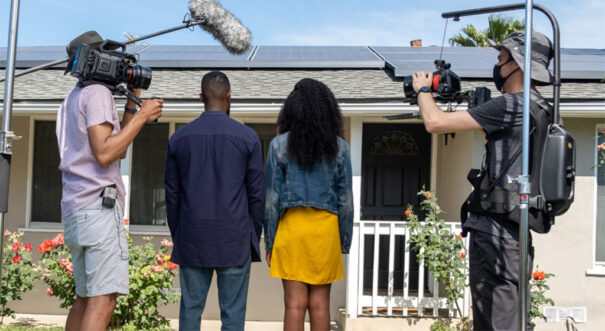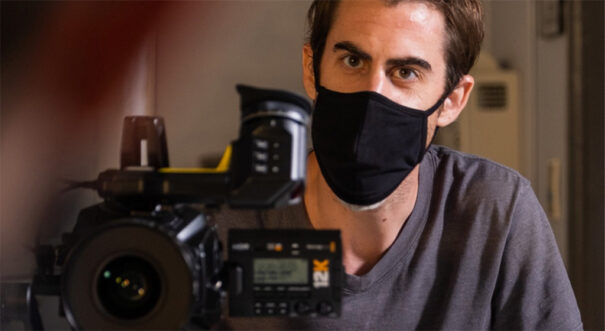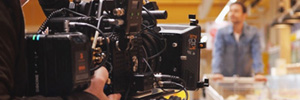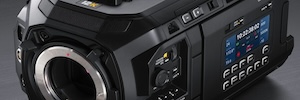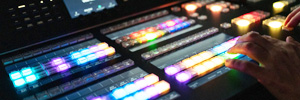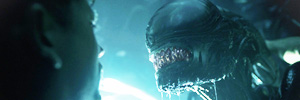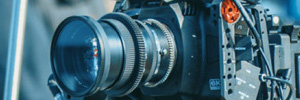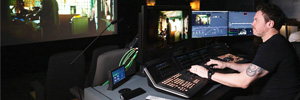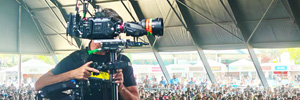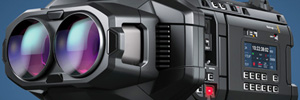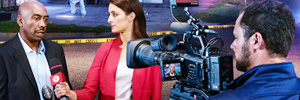Blackmagic, everywhere in the independent film ‘First’
The independent film ‘First’, directed and produced by Jahmela and Brandon Yarbrough, was shot, edited and graded using Blackmagic 设计 solutions.
First, which began as a digital series at Hoorae Media, tells the story of Charles (Will Catlett), an aspiring documentary filmmaker who has abandoned his dream of becoming a filmmaker. However, when he reconnects with Robin (Jahmela B. Yarbrough), a childhood friend, his heart is turned upside down, and the two are confronted with something unknown that they have always longed for and feared at the same time. Charles documents this story as their love grows between them.
Brandon and Jahmela decided to pursue the process through their company, Yarbrough Studios, and produced and directed the feature film themselves in collaboration with cinematographer Will Novy. As Brandon Yarbrough says, it was clear from the start that they were going to go with Blackmagic 设计: “I’ve always loved Blackmagic cameras. I remember long ago borrowing a friend’s camera to shoot a few projects and that’s when I was hooked. I purchased the Blackmagic Pocket Cinema Camera 6K when it first came out and when it was time to shoot this film, our decision to use Blackmagic cameras was easy. Our schedule and budget were very tight, so we decided to shoot multi cam. I knew the size and weight of the Pocket 6K and Pocket 6K Pro would help us move quickly, and the quality you can achieve is amazing.”
Novy was happy with the decision, having had good previous experience with the Australian firm’s equipment: “I knew they would keep up with the fast paced environment on set. We used one Pocket Cinema 6K, one Pocket Cinema 6K Pro, and an URSA Mini Pro 12K. The Pocket cameras were used for 90% of the shoot, with the 12K used in stunt scenes and when we needed extra coverage. For example, there was a scene where the two lead actors jumped into a swimming pool. We were racing against the sun to shoot that scene, but with our three cameras we were able to make our day before losing light.”
Blackmagic RAW key to colour grading
When it came to shooting, the First team opted for the Blackmagic RAW codec to achieve a balance between quality and the storage space required. Novy explains some of the key factors behind this decision: “As a DP, I love having as much quality and resolution recorded as I can, but there’s a give and take when you’re shooting with three cameras and limited hard drive space. We ended up deciding to shoot Blackmagic RAW in constant bitrate at 5:1 so we could maximize quality and still save some hard drive space.”
Once the shoot was complete, Brandon Yarbrough took over the editing and chose the DaVinci Resolve editing module, which he has been using since 2020: “This was by far the smoothest and the most stress free post experience I have had in my 20 years of editing. With other software I’ve used in the past, stability was a big problem. I would have projects crash all the time, and I’ve even lost projects entirely. Moving over to DaVinci Resolve when I did has saved me so much time and headache. It is so smooth and stable, and I never had any issues while working on this project.”
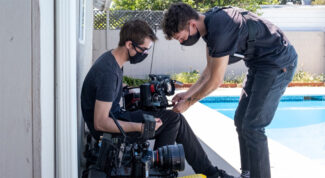 The various tools offered by the Blackmagic Design tool also proved very useful for creating visual effects in Fusion without the need for third parties: “When I first started on this project, I didn’t know Fusion well. Coming from a layer based compositing system, the nodes didn’t make sense. But when I took a minute to learn nodes, the door of possibilities opened wide! To have such a powerful tool right within Resolve is truly a gift,” adds Brandon.
The various tools offered by the Blackmagic Design tool also proved very useful for creating visual effects in Fusion without the need for third parties: “When I first started on this project, I didn’t know Fusion well. Coming from a layer based compositing system, the nodes didn’t make sense. But when I took a minute to learn nodes, the door of possibilities opened wide! To have such a powerful tool right within Resolve is truly a gift,” adds Brandon.
Colourist Sarah Sebring colourised the film in DaVinci Resolve Studio and was able to perfectly capture the transitions between the different eras that the Yarbroughs had imagined. Jahmela says: “Sarah was able to subtly give us a ’90s look, an early 2000s look and a present day look all while keeping a cohesive overall quality. She did a marvelous job bringing the entire film together.”
您喜欢这篇文章吗?
订阅我们的 饲料 而且你不会错过任何东西。



